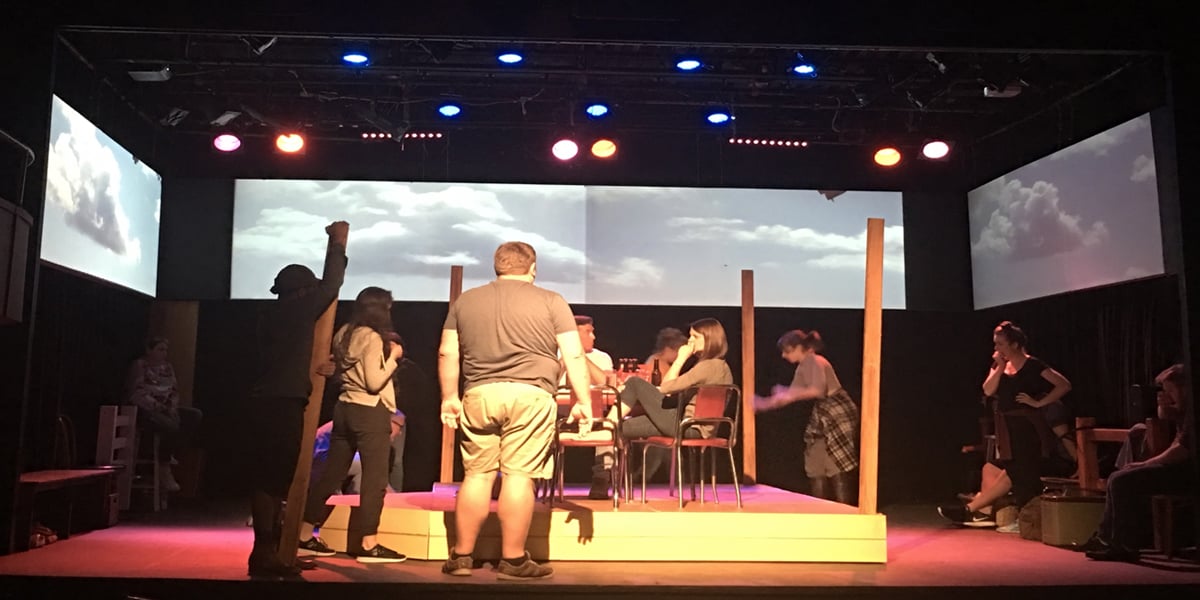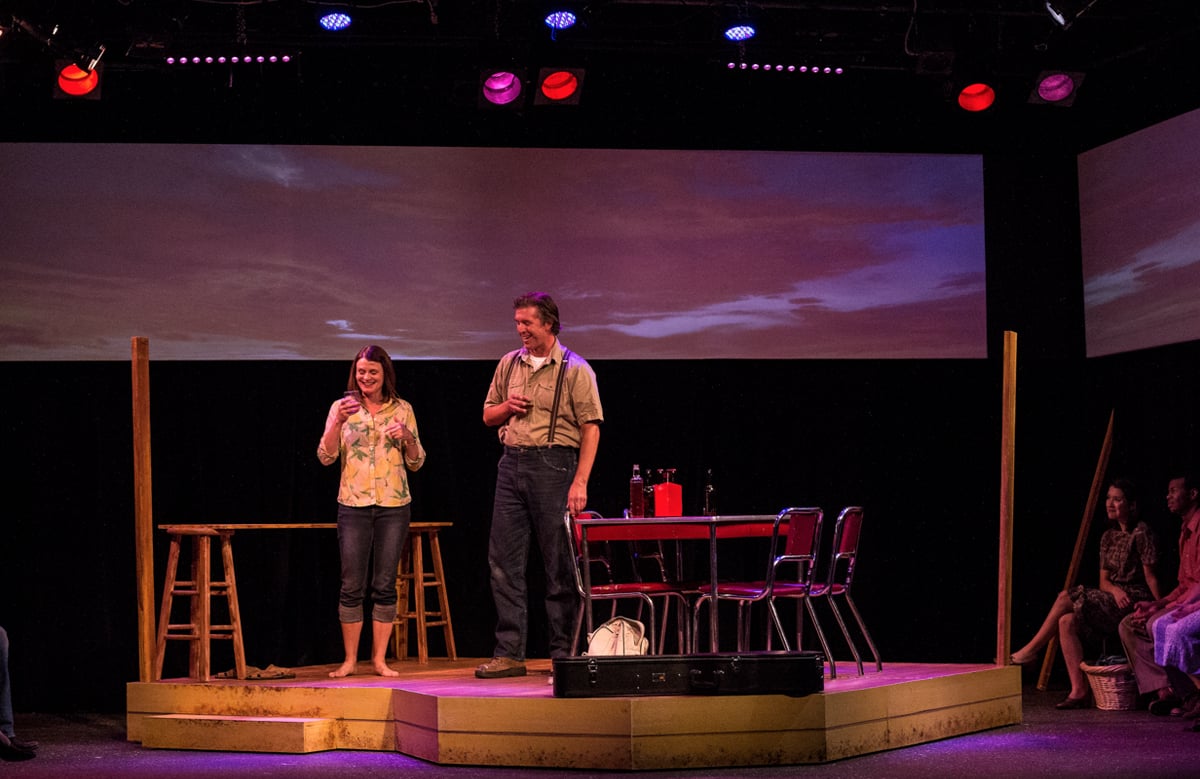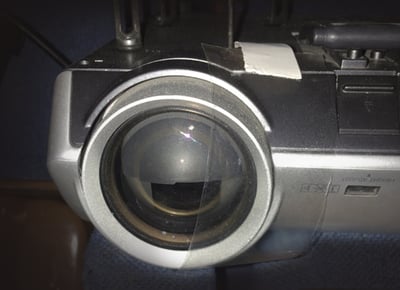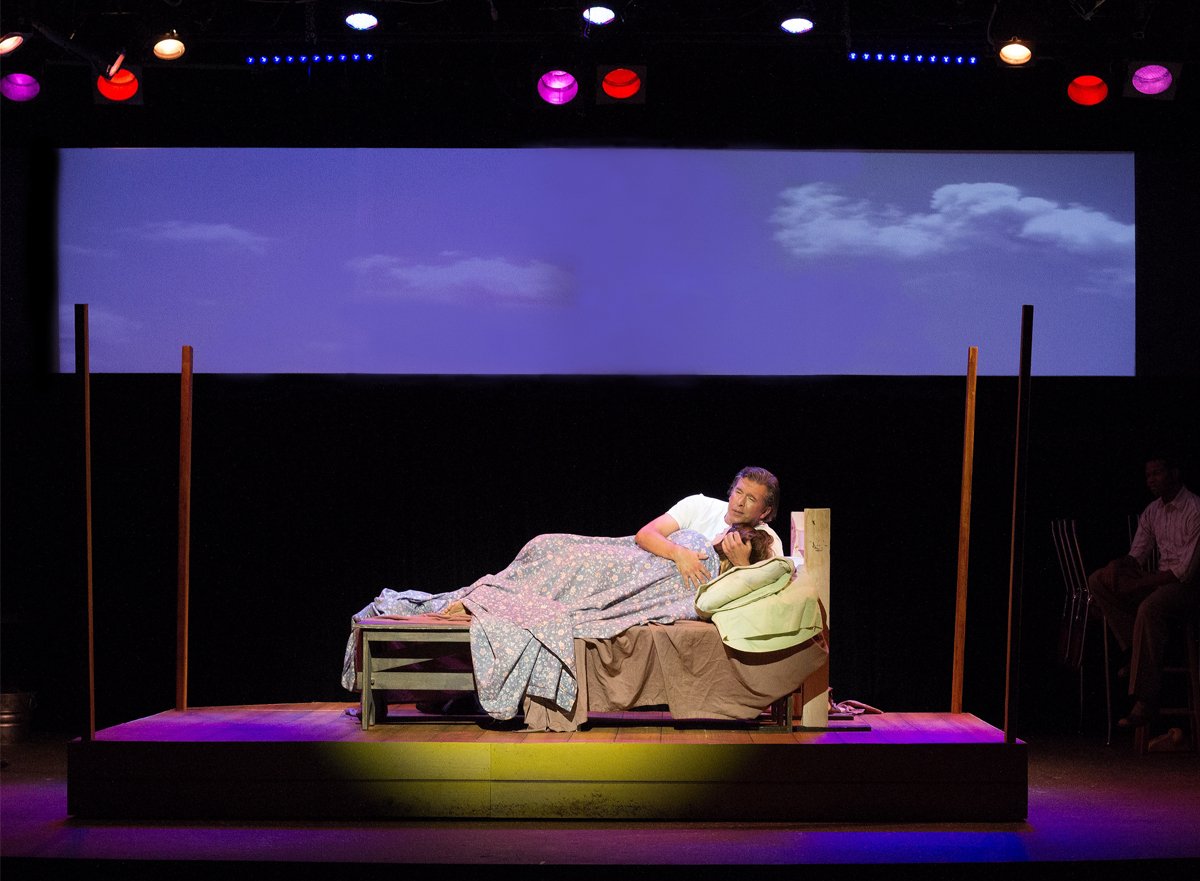While working on a recent production of The Bridges of Madison County at the Clinton Showboat Theatre in Clinton, IA, the production's Scenic Designer, Steven House, approached me with the idea of creating a panoramic projection surface of the sky. In order to make this work on a small budget, we had to borrow a total of four projectors - all of which had different lamp outputs. In my original tests, the two center projectors blended together almost completely; however, once the installation began and the actual projection surfaces were in the air – blending became a problem.
 Note the seam in the center of the projection surface above that gives the appearance that of two separate panels.
Note the seam in the center of the projection surface above that gives the appearance that of two separate panels.
After trying to address the problem in QLab, we began to explore low-budget, physical solutions to solve our problem. At first it was suggested that we try using scotch tape on our projectors, allowing its frost quality to blur the line in the middle. As you can see in the picture below, it was an improvement, but there was still a blended dark spot that almost obliterated the clouds when they traveled through the center. I found that the tape we used had a diffusion quality similar to R102. Knowing this, I decided that we might get better results if we use actual frost instead of tape.
 Scotch tape on the edge of the projector lens helped - but it could be better.
Scotch tape on the edge of the projector lens helped - but it could be better.
Finding the appropriate frost required some trial and error; but in the end, it was decided that Roscolux #114 Hamburg Frost was the best option for our production. Implementing this change was extremely easy. We simply covered the onstage side of both projector lenses enough to blend their images to our satisfaction, and then we attached the frost in that position with gaff tape. The R114 had no issues when it came to melting/warping as most of the heat was blown out the vents of these particular projectors.

It’s worth noting that there was still a little image-blur as the video content passes through that section, but it was an improvement over scotch tape and definitely better than nothing at all. I found that the blur was less noticeable in simple video content (like our production’s floating clouds), but the image-blur was more prominent in more detailed and complex content (such as projections that contained people or other similar content).
 A stage shot showing the final blend using the R114 on the projector lens.
A stage shot showing the final blend using the R114 on the projector lens.
Using frost to blend these projections was budget friendly and increased the audience’s enjoyment. I would easily recommend that smaller theaters try using R114, R119 or other Hamburg Frosts when trying to blend projectors with different intensities.
